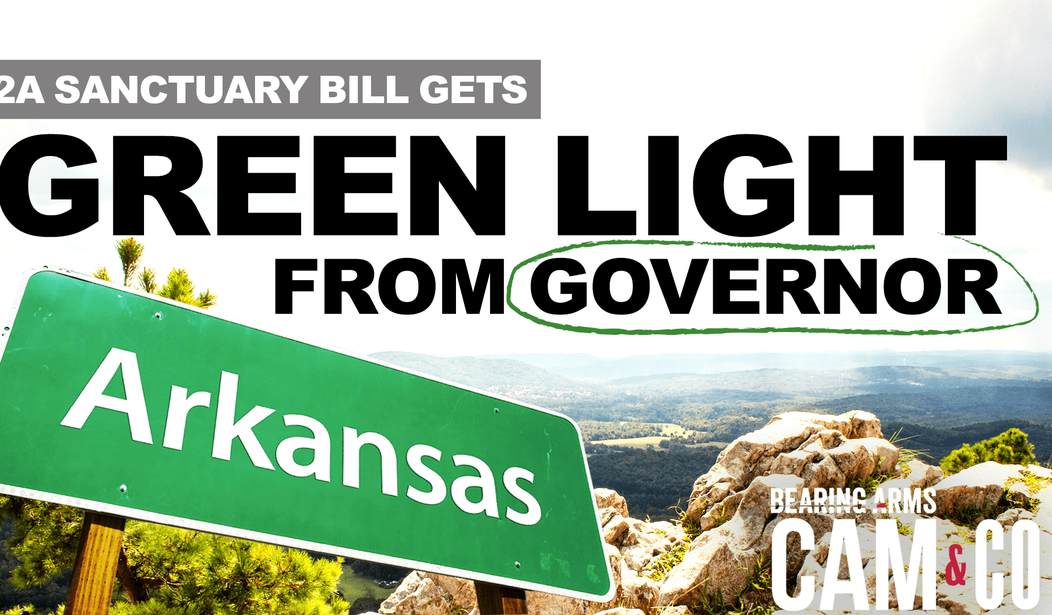The second time is the charm for a Second Amendment Sanctuary measure in Arkansas. After Gov. Asa Hutchinson vetoed the Arkansas Sovereignty Act of 2021 over what he said were flaws in the bill’s language that included turning cops into criminals for arresting felons illegally possessing firearms, it looked like the legislature was going to override the governor. In fact, the state Senate actually did override Hutchinson’s veto, but the state House decided to take a different approach.
On today’s Bearing Arms’ Cam & Co we take a look at the wild and wooly debate over the 2A Sanctuary bill and its journey to the governor’s desk, starting with the decision by the House of Representatives to rewrite the portions of the bill that Hutchinson had objected to.
The state legislature was running up against a deadline to adjourn when the governor vetoed the original bill, but when the leadership in the House decided to change the language in the hopes of getting something that would have the approval of both the legislative and executive branches of the state, they worked quickly. In a little more than 24 hours, the House introduced a new, revised Arkansas Sovereignty Act, passed it through committee and the House itself before sending it on to the Senate.
Lawmakers there were just as swift in approving the new language, and after the bill cleared the Senate the governor announced that he would sign the replacement to the legislation he originally vetoed.
There are two big changes to the original legislation. Instead of declaring all existing and future federal gun control laws to be a violation of state sovereignty, the new measure instead focuses exclusively on new gun control laws at the federal level, which will be considered null and void in the state if they infringe on the rights of citizens.
Additionally, the revised bill removed a section that imposed criminal penalties on local and state law enforcement who cooperated or assisted federal authorities in enforcing any and all federal gun control laws. As Hutchinson pointed out, the way the bill was written could have applied to a police officer who arrested a violent felon illegally possessing a gun if the case ended up being referred to the U.S. Attorney for prosecution instead of remaining in state courts.
Now, any police officer who assists or cooperates with the federal enforcement of any new gun control law runs the risk of being de-certified, but the criminal penalty only applies to any elected official who orders or compels police to enforce new federal gun control laws.
The new bill isn’t as broad and sweeping as the original legislation, which may be disappointing for some Second Amendment advocates. On the other hand, it’s much more likely survive a legal challenge than the first draft of the Sovereignty Act, while still making it clear that any new gun control laws coming out of Washington, D.C. aren’t going to be enforced by state and local police.
All in all, it’s still a very good bill, and I’m glad to see that lawmakers were able to work together so quickly to produce a bill that satisfies almost everyone… with the exception of gun control advocates and the Biden administration.









Join the conversation as a VIP Member